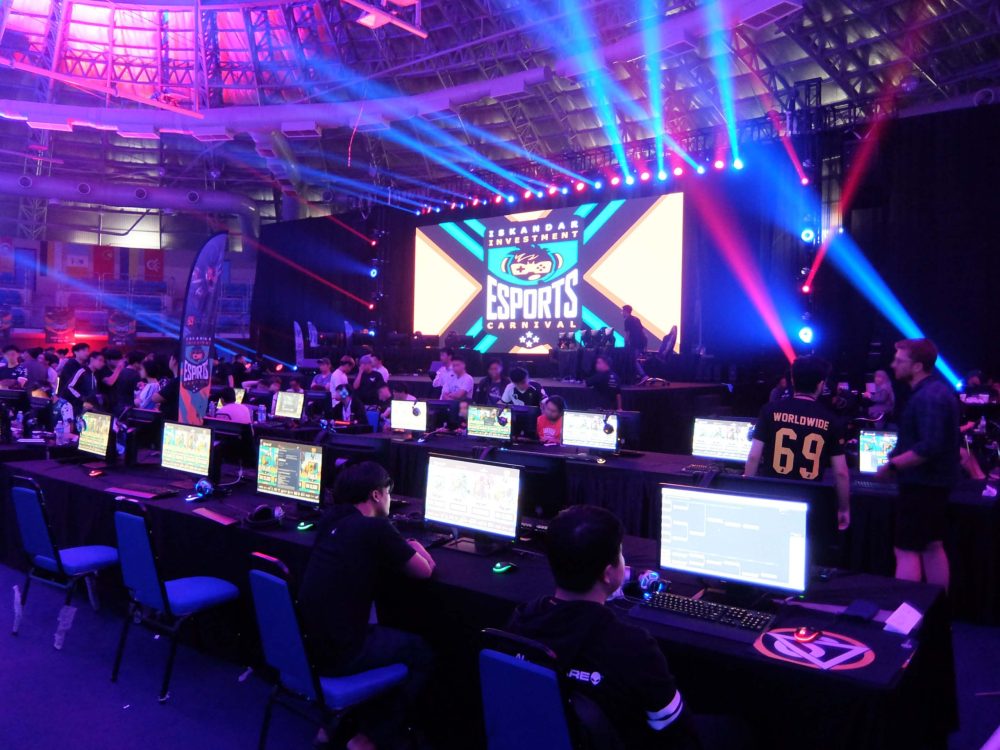The concept of Esports dates right the way back to the creation of the first computer games, but it has only been in the last decade or so that gaming technology has made it possible for esports to become a widespread phenomenon and a fast-growing sector of the gaming and sports worlds.
The History of Video Game Competitions
There were video game competitions as far back as the early 1970s and throughout the late 1970s and 1980s, video game tournaments became more common, based around games such as Space Invaders, Asteroids and Track And Field.
Internet gaming technically began in 1988 with the game Netrek playable by 16 players and in the 1990s, there was an increasing number of video game tournaments, made possible through internet technology, including the Nintendo World Championships and the Cyberathlete Professional League.
But it wasn’t until the 2000s that the esports world began to take off, initially spurred by the construction of nationwide broadband in South Korea, which soon established itself as the leading esports nation.
Warcraft III and Starcraft were two of the most popular early esports games played in tournaments, but as the esports tournament circuit grew steadily from 10 tournaments in 2000 to 260 in 2010, three games emerged as the main powers in the esports world: CS:GO, Dota 2 and League of Legends.
The rise of streaming services such as Twitch has contributed to the rapid spread of esports throughout the 2010s, and now there are flourishing tournament circuits for a wide variety of games, with some tournaments, such as the International, attracting huge global audiences and massive prize pools.

The Most Popular Teams and Players
As with all sports, fans tend to cheer for certain teams and players, and some of these organisations and their star performers have become globally famous.
FaZe Clan is one of the biggest esports teams in the world, and has over 35 professional players on its roster, competing in a range of esports. The team has won over $8.5 million in prize money since it was set up in 2010 and is estimated to be worth around $350 million.
Team Liquid can claim to be an even bigger presence in the esports world, having earned $35 million in prize money over the years, and have competed in over 1700 tournaments. Particularly noted for their CS:GO exploits, Team Liquid was at one point the dominant CS:GO force in the world.
Among the many famous esports players, Johan ‘N0tail’ Sundstein is one of the best known, thanks to his exploits in the world of Dota 2, and having represented four of the biggest teams in the esports world: Fnatic, Team Secret, Cloud 9 and OG.
In the League of Legends world, meanwhile, there is no bigger name than Lee ‘Faker’ Sang-hyeok. One of the most successful ever esports players, Faker is a three-time world champion and six-time LCK champion and the first player to reach 1,000 and 2,000 kills in the LCK.
Leagues and Tournaments
The biggest esports tournament in the world is the International, the annual competition for Dota 2 teams, which dominates the list of richest competitions. The 2021 edition produced a prize fund of more than $40 million and the five preceding editions take up the next five spots on the list.
For League of Legends players, the annual World Championship is considered the pinnacle, while CS:GO fans focus on the various Majors that are held around the world, such as the 2021 PGL Stockholm Major, which was won by Natus Vincere, who claimed a $1 million prize.
Esports Betting
The betting industry was slow to catch on to the potential for esports betting, but in recent years there has been a scramble to offer esports betting opportunities to fans.
Traditional sportsbooks struggled to cover esports properly in the early days as they lacked the knowledge and were uncertain how to engage the audience. That opened the door for specialist esports betting companies, and they have helped to raise standards across the board.
Modern esports betting fans are able to bet on a variety of markets in over 40 sports, including many live betting markets, and some esports betting sites supplement their betting platform with live streaming and even options to make deposits and withdrawals using cryptocurrency.